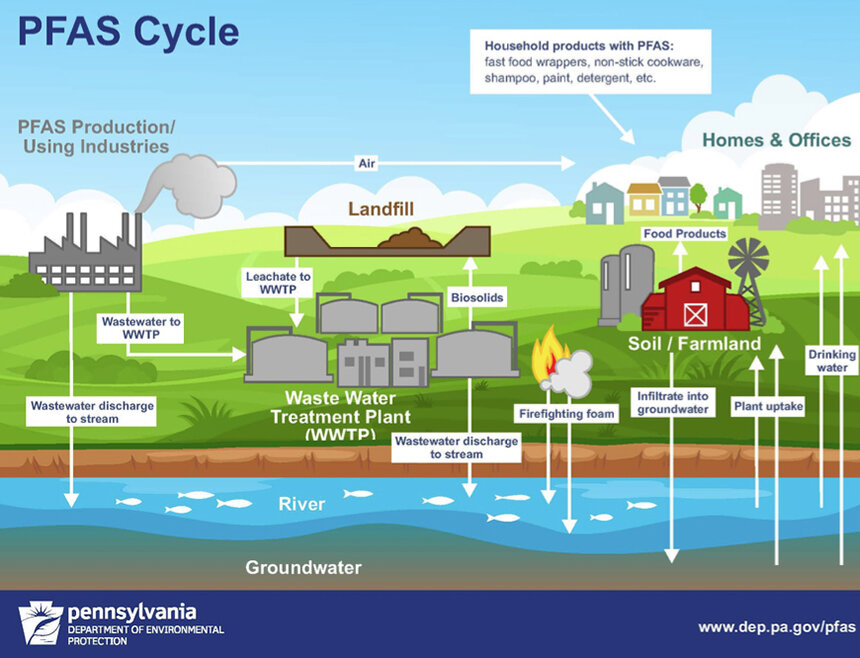Cornering the Market on Healthy Food
November 22, 2010
PAWTUCKET, R.I. — A healthy-food revolution was afoot at Ama’s Variety and Minimart. You could almost hear the Hostess snacks shaking in their wrappers as a squadron of roughly 20 volunteers formulated a plan of attack outside the store: Take down all the junk food and tobacco signage; exile unhealthy processed foods to the back of the store, and repopulate the aisles’ end caps and top shelves with fresh produce and healthy snacks.
This was no ambush, but a premeditated makeover, spearheaded by the Healthy Corner Store Initiative (HCSI), a program dedicated to bringing fresh, healthy foods into corner stores.
Ama’s sits on a busy street corner in a neighborhood not served by a grocery store. Like so many urban neighborhoods in the United States, this one could be called a “food desert,” or an area with a distant grocery store but an abundance of establishments offering little or no nutritious food. Frequently, these corner stores, with their stock of ready-to-eat processed foods, become surrogate grocery stores.
Driven by this awareness and by the desire to create a healthier community, the owners of Ama’s, Ama and Isaac Amponsah, approached the HCSI this fall with a request for assistance in making their store a healthier place for shoppers.
In response, the HCSI helped the store select new products and developed plans to improve the store’s layout to promote healthy items and make the store more attractive and inviting to customers.
Watching the chaos of the makeover unfold from behind her perch at the register, where she continued to wait on a steady flow of customers in spite of all the activity, Ama beamed her signature smile. “I am so honored. It is so beautiful. This empowers us and the kids. Hopefully, we can infect everybody — the whole neighborhood.”
Meanwhile, her husband Isaac was in the trenches, helping volunteers as they moved unhealthy foods toward the back of the store. “What are you doing with those empty boxes? You going to bury Little Debbie?” Isaac quipped.
Also pitching in Saturday was Arthur Plitt, a longtime local resident and president of the Neighborhood Alliance of Pawtucket, who originally told the Amponsahs about the HCSI initiative.
Asked how he thought customers were reacting to the changes, he said, “People are responsive. They seem to be confused about all the activity today, but they like the idea of having healthy stuff available here.”
In another corner of the store, volunteer Audrey Burke had been tasked with making signs highlighting the new healthy items. She had come from Boston to help with the makeover. An employee at the Mattapan Food and Fitness Coalition, Burke grinned as she put up the new signs. “This is right up my alley. I’m really passionate about healthy food.”
Amelia Rose, director of the Environmental Justice League of Rhode Island, flitted from one group of volunteers to another. She stopped to talk with three volunteers assigned the job of ferreting out healthy items. There was uncertainty about some Ramen noodles. Rose picked up the package in question and read the nutritional label.
“This package contains 72 percent of the recommended daily allowance of sodium. Shame on Top Ramen…”
And so it was that the popular noodles earned a spot on the bottom shelf.
All the labeling done on Saturday is intended to help not only adults, but also kids, especially those who attend Elizabeth Baldwin Elementary School across the street from Ama’s.
As part of the store’s makeover, the school and HSCI are launching the “Healthy Snack Challenge.” Each time a student makes a healthy purchase at Ama’s from now until Dec. 10, he or she receives a raffle ticket.
“Kids at Baldwin go to Ama’s before and after school and buy what’s available — the cheapest, most unhealthy items,” Rose said. “These kids deserve a healthier future than what Doritos, Coke and Little Debbie promise them.”
Categories
Join the Discussion
View CommentsRecent Comments
Leave a Reply
Related Stories
Your support keeps our reporters on the environmental beat.
Reader support is at the core of our nonprofit news model. Together, we can keep the environment in the headlines.
We use cookies to improve your experience and deliver personalized content. View Cookie Settings




This is fantastic! I love that there are volunteers working on this – it's so very important. Thank you!!!